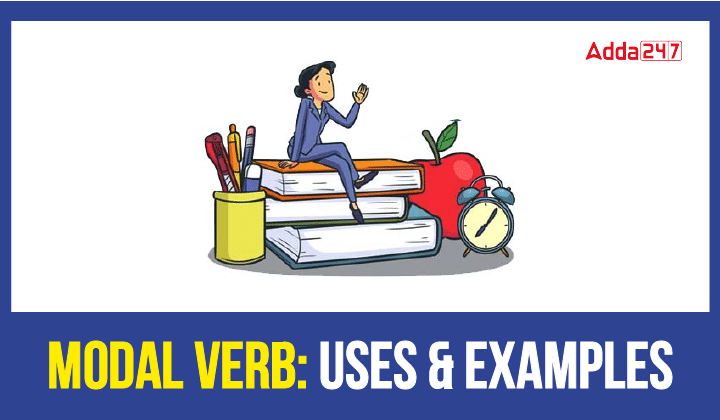Table of Contents
English is a funny language for those who are not native. Even to natives, some rules don’t make sense. With so many loan words and rules evolving through centuries, it becomes crucial that you know a few basic things in order to avoid making rookie mistakes. One such topic that you should master is the Modal Verbs. These forms an important part of writing and speaking flawlessly. So, with that said, let’s take the discussion to the Modal Verbs. Along with this, we will also give you relevant examples to help you understand easily.
What is a Modal Verb?
A Modal Verb is an auxiliary verb that is used along with main verbs to contextually indicate a modality such as likelihood, ability, permission, request, capacity suggestion, order, obligation, necessity, possibility or advice. In simple words, a modal verb is used alongside the main verb to express ideas such as the possibility, intention, or necessity of a subject to do an action. They are used alongside the infinite form of the main verb of a sentence. Some of the common examples include can, could, might, etc.
Modal verb vs Helping Verb
At this point, you might be thinking about how Modal Verbs are different from Help Verbs. Well, to simplify things, you can think of it as all Modal Verbs are Helping verbs. Helping verbs does not alter the meaning of the main verb but only assists the main verb in forming tense, mood, and voice.
| Difference Between Modal Verbs and Helping Verbs | |
| Modal Verb | Helping Verb |
| Modifies the meaning of the main verb depending on the context. | Assists the main verb in forming various verb tenses, moods, and voices. |
| Do not have their own specific meaning. | May have their own meaning and can also function as the main verb. |
| Followed by the base form (infinitive) | Can be followed by base form, present participle, or past participle. |
| Examples – Might, Must, Shall, Should, etc. | Examples – be, have, do, etc. |
Types of Modal Verbs
The Modal Verbs are used to express various situations, such as attitudes, possibilities, obligations, permission, and more. They are combined with the main verb depending on the context to convey meaning. There are a total of nine primary modal verbs in English. Many say there are ten modal verbs too. Here are all of them.
| Types of Modal Verbs | |
| Can | Could |
| Shall | Should |
| Will | Would |
| May | Might |
| Must | Ought to |
Examples in Sentences
Each of the Modal Verbs is versatile and can be combined in various ways. They all have their unique function and nuances. Let’s take a look at what they are primarily used for and some examples in sentences that will further make things clearer for you.
Can and Could
“Can” and “Could” are used to express ability, possibility, and permission. Depending on the context and how you use it alongside the main verb, it can modify the meaning.
| Can and Could | |
| Usage | Examples |
| Showing possibility | He can speak four languages. |
| Showing ability | Suresh can swim deep into the water for a longer period of time. |
| Showing permission |
|
May and Might
“May” and “might” are used to indicate permission, possibility, or uncertainty.
| May and Might | |
| Usage | Examples |
| showing permission | May I come in, please? |
| showing possibility | It may rain later. |
| showing uncertainty | It might not rain after all. |
Must
“Must” expresses a strong obligation. Example – You must come to my party.
| Must | |
| Usage | Examples |
| Expresses a strong obligation | You must come to my party. |
Will and Would
“Will” and “Would” are used to indicate future actions, intentions or preferences.
| Will and Would | |
| Usage | Examples |
| Showing action | I will finish my work later. |
| showing intention | I asked him, but he said he would not help. |
Shall
“Shall” is used mainly in formal contexts for suggestions or offers.
| Shall | |
| Usage | Examples |
| Suggestion | We shall meet at the conference tomorrow. |
| Laws and Rules | Citizens shall not trespass on government property. |
| First Person Questions | Shall I assist you with your bags? |
| Expressing Determination | I shall do everything in my power to achieve my goals. |
Should
“Should” is used to give advice, make recommendations, or express obligation.
| Should | |
| Usage | Examples |
| Advice or Recommendation | You should eat more vegetables for a healthier diet. |
| Obligation or Duty | Students should complete their assignments on time. |
| Possibility | If you study consistently, you should perform well on the exam. |
| Indirect Speech | She said that she should finish the project by the end of the week. |
Conclusion
Navigating the intricacies of the English language, especially for non-native speakers, can be both amusing and challenging. Even to native speakers, certain rules appear perplexing. In the midst of a linguistic landscape shaped by centuries of evolution and borrowing, mastering fundamental concepts becomes paramount to avoid common errors. One such crucial aspect is understanding Modal Verbs, which play a pivotal role in achieving fluency in both written and spoken English. Modal Verbs, serving as auxiliary verbs, contextualize the modality of actions, encompassing likelihood, ability, permission, and more.



 MP TET Varg 3 Notification 2025 Out, Che...
MP TET Varg 3 Notification 2025 Out, Che...
 CG Vyapam Pre Deled Final Answer Key 202...
CG Vyapam Pre Deled Final Answer Key 202...
 CG Vyapam Pre DElEd Result 2025 Out, Dir...
CG Vyapam Pre DElEd Result 2025 Out, Dir...




